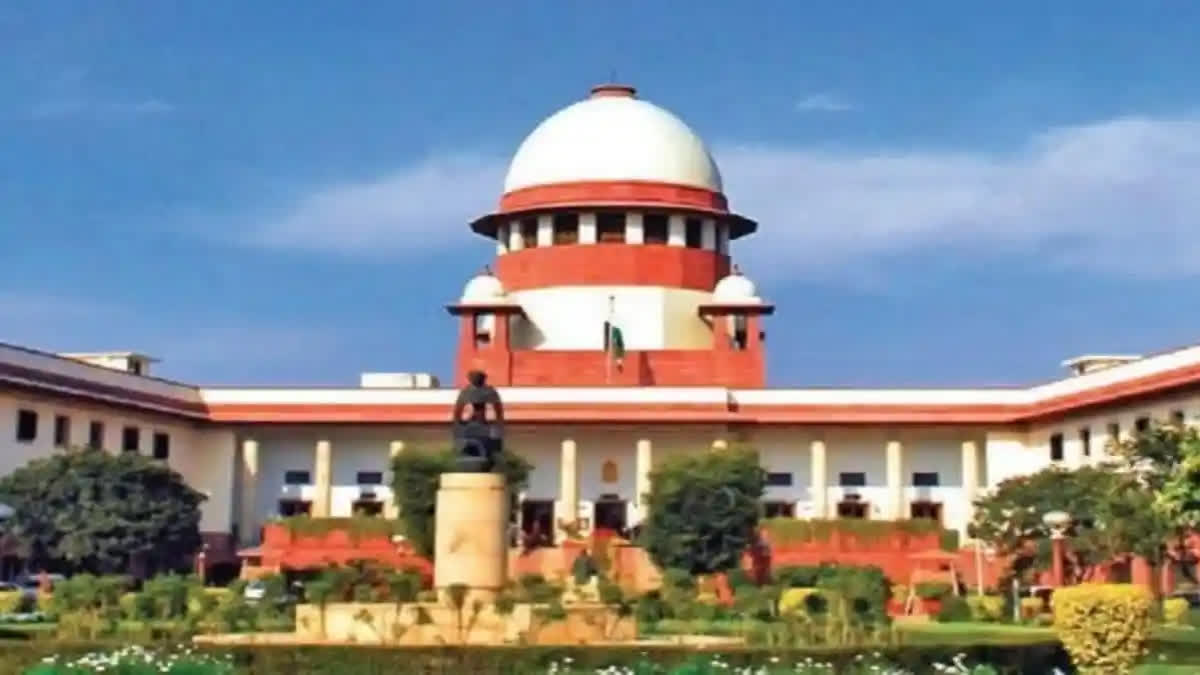New Delhi: The Supreme Court has acquitted two persons facing murder charges in a 32-year-old case after noting that the findings of the Madhya Pradesh High Court were “totally based on conjectures and surmises”. The appellants Ballu and Halki Bahu were initially acquitted by the trial court, however, the High Court reversed the acquittal. The appellants moved the apex court challenging the High Court judgment.
A bench comprising justices BR Gavai and Sandeep Mehta said it is to be noted that the present case is a case of reversal of acquittal. “The law about interference by the appellate court is very well crystallised. Unless the finding of acquittal is found to be perverse or impossible, interference with the same would not be warranted”, said Justice Gavai, who authored the judgment on behalf of the bench.
Justice Gavai, in the judgment delivered on April 2, said the elaborate exercise of the trial judge, has been washed away by the division bench of the High Court in a cursory manner. “The High Court could have interfered in the criminal appeal only if it concluded that the findings of the trial judge were either perverse or impossible……no perversity or impossibility could be found in the approach adopted by the learned trial Judge”, said the bench.
Justice Gavai said in any case, even if two views are possible and the trial judge found the other view to be more probable, an interference would not have been warranted by the High Court unless the view taken by the trial Judge was perverse or impossible. “We are compelled to say that the findings of the High Court are based on conjectures and surmises”, said Justice Gavai.
The bench noted that though the High Court has referred to the law laid down by it about the scope of interference in an appeal against acquittal, it has misapplied the same. “A very well-reasoned judgment based upon the correct appreciation of evidence by the trial court has been reversed by the High Court, only based on conjectures and surmises”, said Justice Gavai.
The apex court said that the trial Judge had given sound and cogent reasons for discarding the testimony of the investigating officer (IO) and the other witnesses. “We are of the view that the High Court has erred in observing that the trial Judge had brushed aside the evidence of the IO simply based on conjectures and surmises”, said the bench.
The trial judge noted that the incident was on June 7, 1992, at around midnight and it had been reported to IO at 12:40 am, the arrest of the accused persons had been made only on June 15 1992, which creates doubt on the prosecution version. This is more so when the distance between the place of occurrence and the police station is hardly 1 to 1 ½ kms, said the trial judge.
The appellants were sentenced to life sentence for the murder of Mahesh Sahu, who was in a love relationship with Ballu’s sister. It was alleged that due to this enmity, on June 7, 1992, at about 11 pm, the appellants caused the death of the deceased in furtherance of their common intention.
The prosecution had relied on the evidence of Govind, who saw Ballu dragging a dead body from his house. He had also seen his mother, Halki Bahu, who was washing the blood stains at the door of their house. “The accused persons (appellants) are acquitted of all the charges they were charged with. The appellants are already on bail. Hence, their bail bonds shall stand discharged”, said the apex court, setting aside the high court judgment.
Read more: SC To Hear Plea For Cross-Verification Of Votes With VVPAT In Two Weeks



